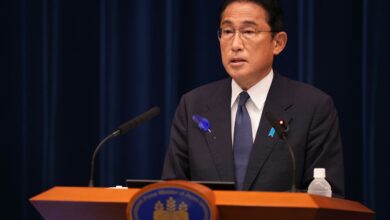Argentina’s pact with IMF faces uncertain future

Buenos Aires, Mar 10 (EFE).- The Argentine government’s accord with the International Monetary Front (IMF) to reschedule some $45 billion in debt to the Washington-based lender came under fire Thursday in Congress against the backdrop of violent protests against the pact.
President Alberto Fernandez hopes to secure quick approval of the deal from both houses of Congress to ensure that Buenos Aires gets the funds it needs to make a substantial payment due on March 22.
But Thursday’s developments in the lower house showed that the path ahead will not be smooth, as the conservative main opposition refused to allow consideration of the accord unless the government agreed to remove references to policies that Fernandez pledged to follow as a condition for securing IMF approval.
Together for Change, the party of former President Mauricio Macri, said it was unwilling to be the government’s “partner” in imposing “austerity.”
Oddly enough, it was Macri who turned to the IMF in 2018, borrowing $44.5 billion after the Argentine peso plunged against the dollar despite desperate measures that included raising the benchmark interest rate to 40 percent.
The administration itself is not united on the issue.
Sectors close to Vice President Cristina Fernandez (no relation to Alberto), who was Argentina’s head of state from 2007-2015, are not happy about the agreement.
Outside Congress, several hundred activists from leftist parties and grassroots organization gathered Thursday for a protest against the measures that will be required to meet IMF targets, such as raising utility rates and cutting fuel subsidies.
A group of militants wearing hoods hurled rocks at the legislative building and the police standing guard. The cops responded with rubber bullets and officers on motorcycles drove into the crowd to disperse the protesters.
“This is the best accord that could be achieved,” lawmaker Carlos Heller, an ally of President Fernandez, said Thursday.
“The rejection of this accord, which would be default, would bring us great economic, social, and institutional problems that we must avoid at all costs,” he said.
During the 2003-2007 presidency of the late Nestor Kirchner (Christina Fernandez’s husband), Argentina paid off its obligations to the IMF and successfully rescheduled most of the sovereign debt that forced Buenos Aires to default in early 2001.
The origins of the 2001 default, which was then the largest in history and occurred amid a financial meltdown and economic depression, went back to Argentina’s 1976-1983 military regime, which presided over a 465 percent expansion in public indebtedness.
EFE
nk/dr





